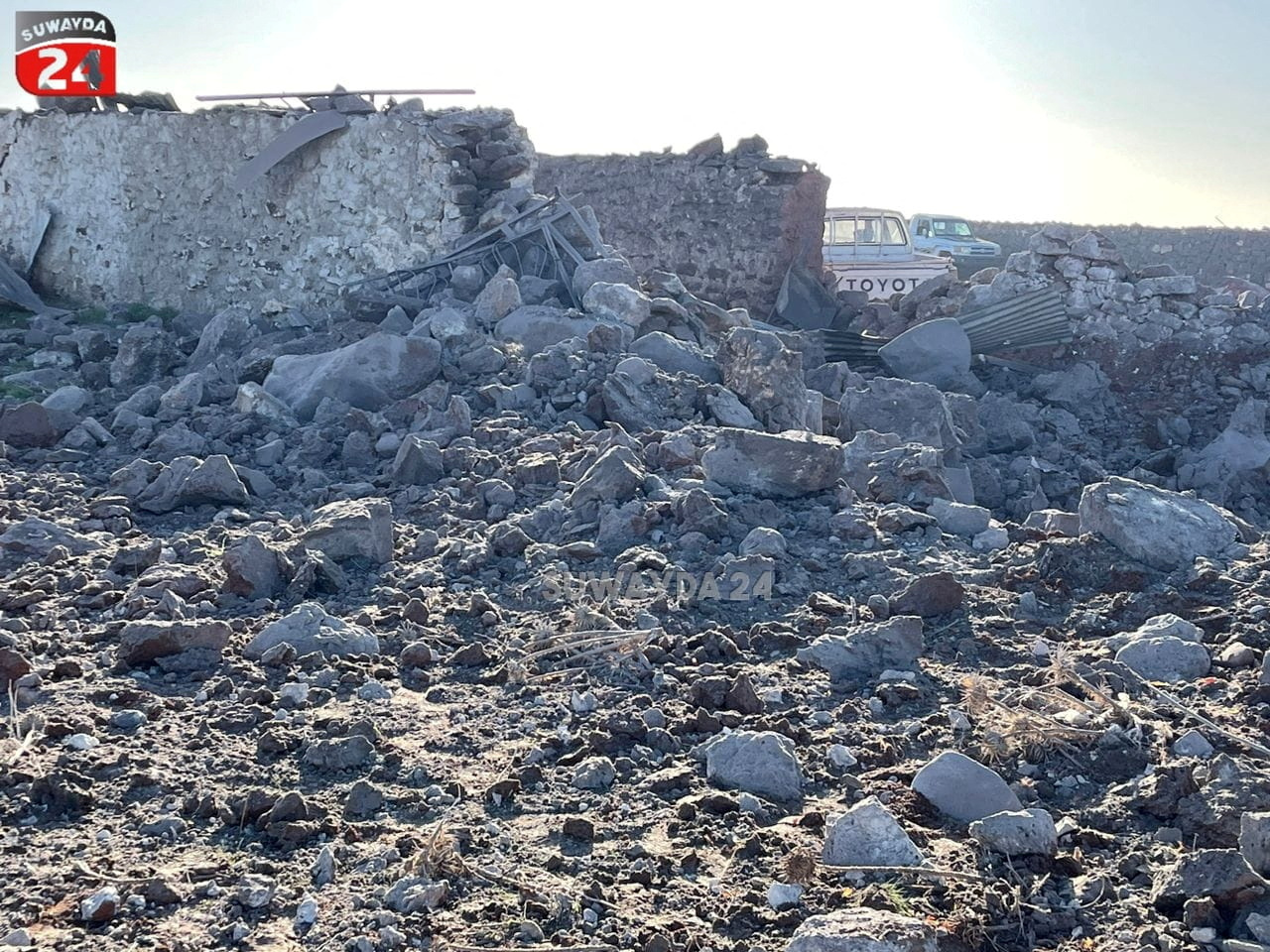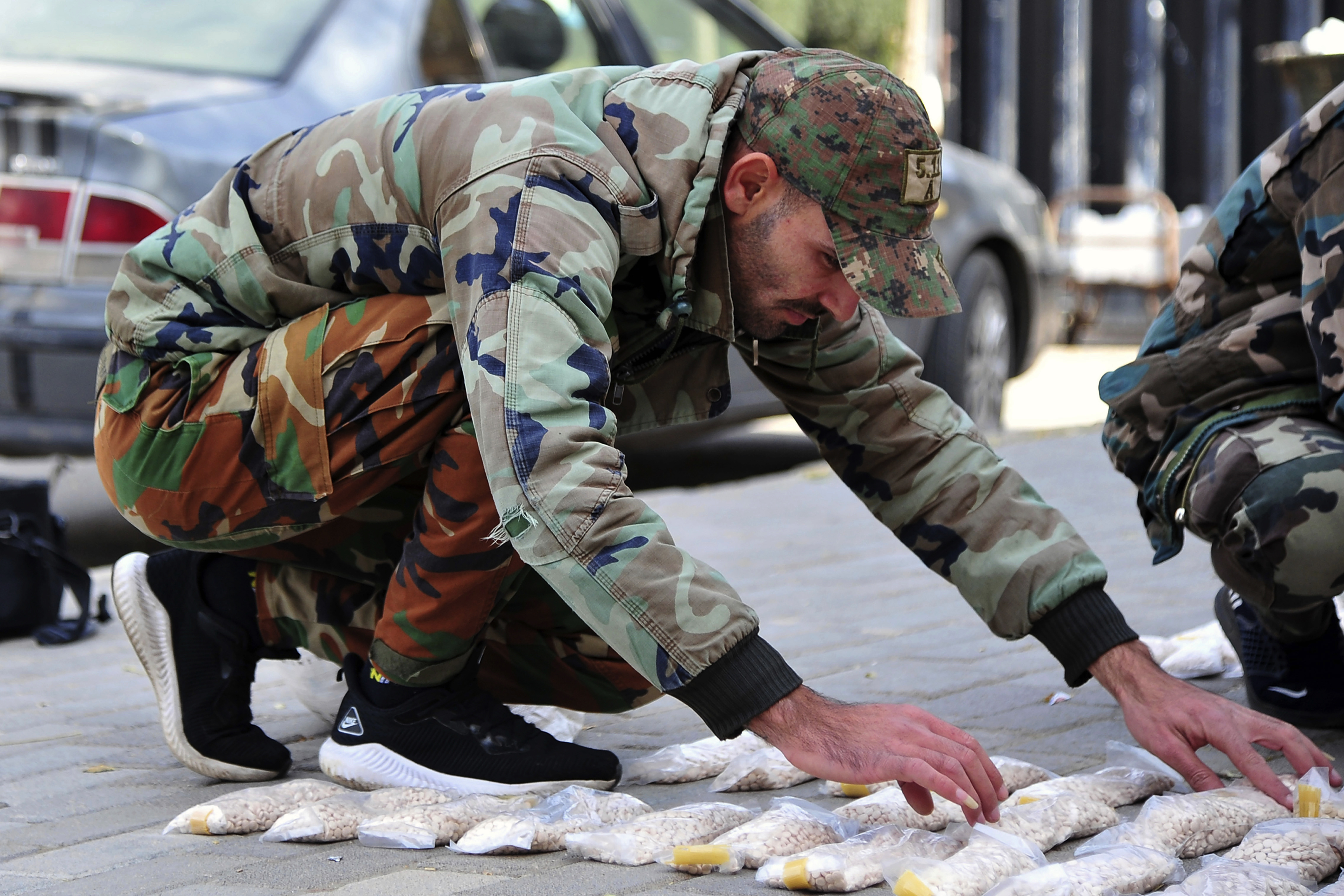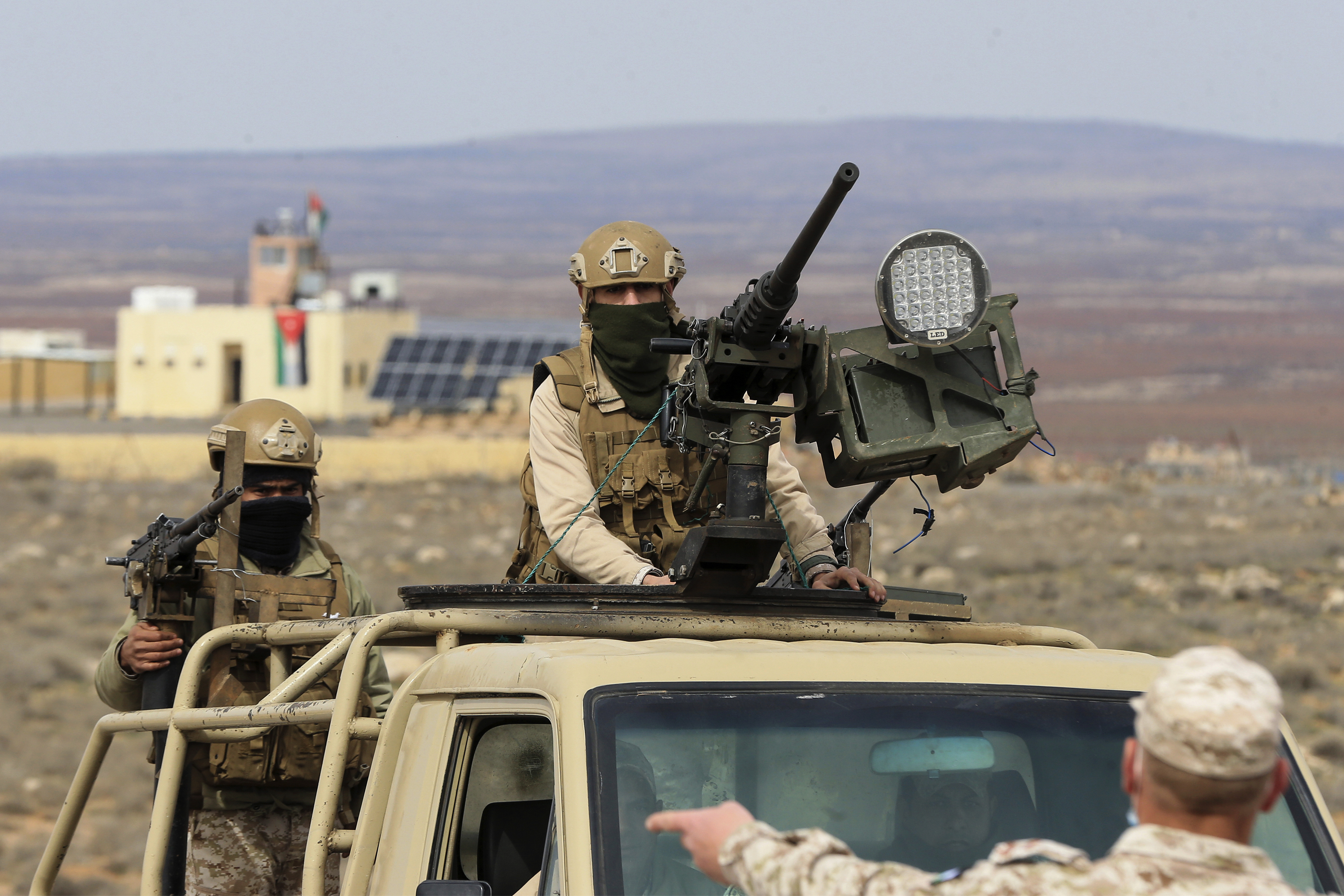
An estimated 10 civilians have been killed in air strikes targeting the neighbouring towns of Arman and Malh in the southeast Syrian province of Sweida, according to local media.
Jordanian forces are believed to be behind Thursday’s attacks, though its government has yet to confirm any involvement.
Sweida 24, a news platform based in its namesake city, said warplanes carried out simultaneous strikes on residential neighbourhoods after midnight local time (21:00 GMT).
The attack in Malh caused material damage to some houses. The second strike in Arman, however, collapsed two houses and killed at least 10 civilians, including four women and two girls, both under the age of five.
Jordan is thought to have carried out previous raids in Syria, mostly near the countries’ shared border, in an effort to disrupt weapons smuggling and drug-trafficking operations.

But inhabitants of the towns struck on Thursday questioned the choice of targets.
“What happened was a massacre against children and women,” Murad al-Abdullah, a resident of Arman, told Al Jazeera. “The air strikes that targeted the villages are far from being identified as fighting drug traffickers.”
Al-Abdullah said the bombing was not limited to houses of people suspected to be involved in drug trafficking. He noted other homes were damaged as well, terrorising villagers while they were asleep and causing needless civilian deaths.
“It is unreasonable for two girls who are no more than five years old to be involved in drug trafficking,” al-Abdullah said.
Tribes and residents of the villages near the Jordanian border issued separate statements this week disavowing any involvement in drug smuggling.
The statements also pledged to lend a hand to Jordan to eliminate criminal networks trafficking narcotics and other drugs across the border. In turn, they asked Jordan to suspend its bombings of civilian sites.
The spiritual leader of the Druze religious group in Syria, Sheikh Hikmat al-Hajri, appealed to Jordan to prevent further civilian bloodshed.
“The attacks should be heavily focused towards the smugglers and their supporters exclusively,” al-Hajri said in a public statement.
Al-Abdullah, the Arman resident, also called on Jordan to collaborate with Syrian locals to stop the trafficking operations.
“We are a society that does not accept the manufacture or trade of drugs, and the Jordanian government should have communicated with our elders to cooperate in combating drug traffickers, instead of bombing residential neighbourhoods,” al-Abdullah said.
Suspected attacks aimed at drug-trafficking operations
Thursday’s attack is believed to be the third time this year that Jordanian planes have carried out air raids on Syrian territory.
A previous attack occurred on January 9, resulting in the deaths of three people in the countryside of Sweida, according to the Syrian Observatory for Human Rights, a London-based rights monitor.
The Observatory said that five smugglers were also killed in a border attack on January 7. Fighting that day took place sporadically over 10 hours.
By the end of the raid, Jordanian forces had arrested 15 suspects. They also claimed to have recovered 627,000 pills of Captagon, an illicitly manufactured amphetamine, and 3.4kg of cannabis.
“What Jordan is doing can certainly delay drug-smuggling operations but unfortunately, cannot stop them completely. The border with Syria is 375km (233 miles) long, and smuggling operations are carried out by professional groups, not some random individuals carrying out bags of drugs to cross the border,” said Essam al-Zoubi, a lawyer and human rights activist.
Drug enforcement officials in the United States and other Western countries have said that war-torn Syria has become a major hub in the Middle East for the drug trade.
The country, for instance, has become the primary manufacturer for Captagon, a multibillion-dollar business. Experts have said smugglers are using Jordan as a route through which Syrian drugs can reach the oil-rich Gulf states.

Al-Zoubi and other human rights advocates have warned the Syrian government itself is involved in the drug trade, in an effort to shore up its war-drained finances.
Reports indicated that the Fourth Armoured Division of the Syrian Army has played a role in overseeing the country’s drug operations, alongside the Iran-backed armed group Hezbollah, an ally of the Syrian government.
“The officials responsible for drug smuggling in Syria are Hezbollah of Lebanon, the Fourth Division, and the security apparatuses of the Syrian regime that control southern Syria,” al-Zoubi said.
Jordan and its allies have also taken other approaches to stopping the drug trade.
In March last year, for instance, the US Department of the Treasury imposed sanctions on six people, including two relatives of Syrian President Bashar al-Assad, for their role in producing and trafficking Captagon. Some of those sanctioned had ties to Hezbollah as well.
But al-Zoubi warns that even targeted attacks on Syrian drug dealers will not be enough to stop the trade.
“It does not matter to the drug officials from Hezbollah or the Fourth Division if traders are killed, as the trades themselves will continue regardless of the people,” al-Zoubi said, pointing to an example in May 2023.

Jordanian planes, at the time, had carried out air raids in the Sweida countryside, targeting the house of one of the most famous drug traffickers in Syria, Marai al-Ramthan. He was ultimately killed in the attack.
But, al-Zoubi said, his death “did not limit drug trafficking but, in fact, increased it”. Other smugglers used his demise as an opportunity to expand their trade in his absence.
Omar Idlibi, director of the Doha office at the Harmoon Center for Contemporary Studies, said that geopolitical turmoil in the region has also allowed trafficking to flourish.
“Drug-smuggling operations to Jordan did not exist before 2018, that is, before the Syrian regime and its Iranian allies regained control of southern Syria from the opposition factions,” he told Al Jazeera.
Idlibi explained that the launch of Russia’s full-scale invasion of Ukraine in 2022 has had a direct effect on the expanding drug operations.
As it focused on Ukraine, Russia withdrew some of its troops in Syria, allowing Iranian militias and Hezbollah forces to spread. Those groups then turned some of the Syrian army’s headquarters into logistical centres for the manufacture, transport and smuggling of drugs to Jordan.
Russia’s need for military equipment from Iran also prompted it to turn a blind eye to the drug-smuggling activity in Syria, Idlibi explained.
“Everyone knows that the Syrian regime and Iran are behind the terrorist activity on the Syrian-Jordanian border, and unless it is terminated from the source, it will continue at different rates,” Idlibi said.







